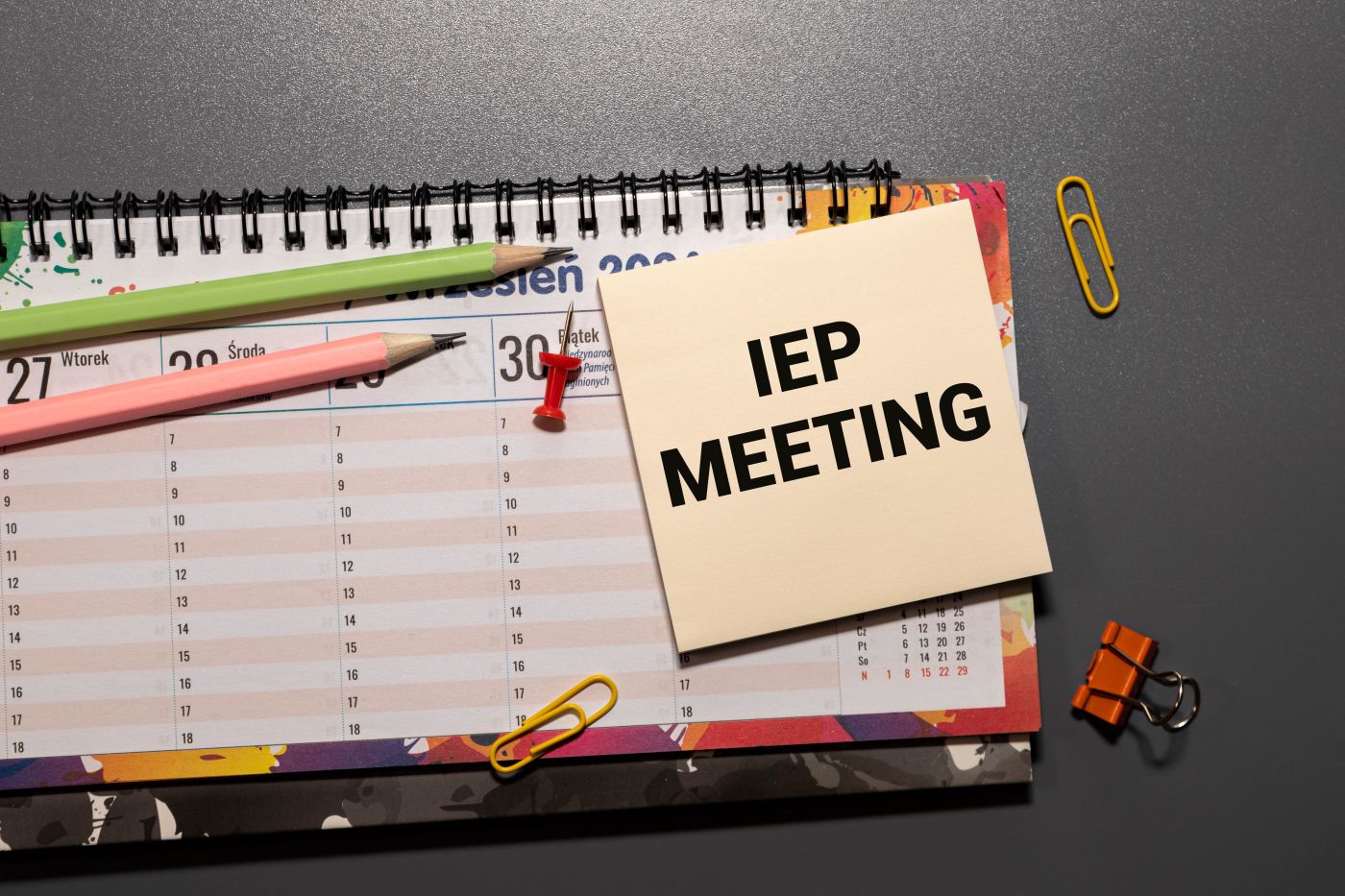As a parent or caregiver, the world of special education services can seem like a daunting task. The terminology, legal requirements, and various options can be overwhelming. However, it's important to understand the fundamental differences and benefits of Individualized Education Programs (IEPs) and 504 plans.
These documents play a role in ensuring that children with disabilities receive a fair and appropriate education. Knowing about IEPs and 504 plans can seem like a monumental task, but with the right information and support, it becomes more manageable.
We will explore the purpose and differences between these plans, providing you with the knowledge to make informed decisions for your child's education. IEPs and 504 Plans: IEPs and 504 plans are not just pieces of paper; they are life-changing documents that can significantly impact your child's educational experience.
Each plan serves a distinct purpose and comes with its specific set of rules and protections. Both plans aim to create an equitable learning environment, but the approach and scope of services offered are tailored differently. Learning about these distinctions can help you deal with the school system more effectively, advocate for the right resources, and assure your child receives the support they need to thrive.
The legal framework may seem complex, but it exists to protect your child's right to a free and appropriate education. Whether your child needs specialized instruction due to a diagnosed disability or simply requires specific accommodations to access their education fully, being informed about IEPs and 504 plans equips you with the knowledge to make well-rounded decisions.
In collaboration with educators and legal support, you can turn what seems like an insurmountable challenge into a series of actionable steps, ultimately achieving the best educational outcome for your child.
IEPs: Individualized Education Programs
An Individualized Education Program (IEP) is a legally binding document developed for each public school child who needs special education. It is created through a team effort and reviewed periodically to assure the child's needs are being met. To qualify for an IEP, a child must have one or more specific types of disabilities listed under the Individuals with Disabilities Education Act (IDEA).
Eligibility and Development of An IEP
To obtain an IEP, the first step is a referral for an evaluation. This can be initiated by a parent, teacher, or school administrator. The school must then conduct an evaluation within a specific timeframe.
If the child qualifies, an IEP meeting is convened with the child's parents, teachers, school administrators, and related service providers to develop the IEP. This includes detailed information such as present level of academic achievement, annual goals, special education services, and accommodations.
Benefits of An IEP
An IEP offers numerous benefits, primarily ensuring a free and appropriate public education (FAPE) tailored to the child's needs. It guarantees access to specially designed instruction, individualized learning strategies, and necessary resources.
The IEP also provides a structured approach to monitor the child's progress and fosters communication and collaboration between parents and educators. Overall, an IEP is very relevant for safeguarding a child's disability rights within the education system.
An Overview of 504 Plans: Section 504 Services
In contrast to an IEP, a 504 plan is designed to provide accommodations and modifications to make sure that a child with a disability has equal access to education. Governed by Section 504 of the Rehabilitation Act of 1973, this plan does not require that the child require special education services, only that they have a disability that significantly impacts a major life activity.
Examples of major life activities include learning, walking, seeing, hearing, speaking, breathing, working, performing manual tasks, and caring for oneself. The primary objective of a 504 plan is to remove barriers to learning by offering necessary supports and equitable opportunities, ensuring compliance with disability rights.
Who Qualifies for A 504 Plan?
Any student with a physical or mental impairment that substantially limits one or more major life activities could be eligible. This differs from the IDEA's categorical eligibility, where the disability must fit into one of 13 specific categories. Examples include students with ADHD, diabetes, epilepsy, depression, mobility issues, or temporary disabilities such as recovering from major surgery.
The eligibility assessment for a 504 plan involves a review process that includes input from educators, parents, and medical professionals.
Section 504 Services
Under section 504 services, schools must provide a range of accommodations and modifications tailored to the specific needs of the student. These can include extended time on tests, preferential seating, modified homework assignments, assistive technology, and modified academic expectations.
Schools are legally mandated to have these accommodations implemented effectively, providing each child a Free Appropriate Public Education (FAPE) as required by the Rehabilitation Act.
The legal framework of Section 504 establishes the necessity for schools to make reasonable modifications to policies, practices, and procedures to provide students with disabilities the same educational opportunities as their non-disabled peers.
Consistent monitoring and reviews of the 504 plan allow for adjustments, addressing any changing needs and ensuring that effective support continues, guaranteeing your child thrives in the school environment.
Key Differences Between IEPs and 504 Plans
While both IEPs and 504 plans provide support and accommodations for students with disabilities, they have distinct purposes and are governed by different statutes.
Eligibility Criteria
Eligibility for an IEP requires a child to have a disability that fits one of the categories outlined by IDEA and requires special education services. A 504 plan has a broader definition of disability under Section 504 of the Rehabilitation Act. This means a child who may not qualify for an IEP could still receive accommodations under a 504 plan.
For example, a student with ADHD who does not require special education services but needs help with organization and time management may be eligible for a 504 plan. Parents should consider their child's needs when determining which plan to pursue.
Services Provided
An IEP focuses on specialized instruction and related services tailored to meet the child's unique learning needs. This can include speech therapy, occupational therapy, counseling, and individualized teaching strategies. Schools provide these services at no cost to parents.
A 504 plan primarily offers accommodations that alter the learning environment to provide equal access to educational opportunities. These accommodations might include extended time on tests, assistive technology, or notes and study guides. The emphasis is on access rather than specialized instruction.
IEPs may be more appropriate for students requiring significant modifications or additional resources to make progress, while 504 plans assist those needing fewer or different types of supports.
Legal Protections
Under IDEA, parents have specific procedural safeguards, such as the right to participate in IEP meetings and receive regular progress reports. Section 504 also provides due process protections, but they are typically less comprehensive.
The Role of Legal Assistance in Securing Special Education Rights
The complexities surrounding IEPs and 504 plans can often seem daunting for parents and guardians. This is where legal assistance becomes indispensable. Specialized legal support, like the services our firm offers, demystifies the complexities of special education law, empowering families to make informed decisions.
An experienced attorney will help you navigate the labyrinth of procedural requirements, ensuring that every aspect of the evaluation and planning process is meticulously handled. Legal professionals are adept at interpreting nuanced educational assessments and translating medical and psychological reports into actionable educational plans.
By providing clear guidance, lawyers can help resolve conflicts and misunderstandings with the school district, ensuring your child’s rights are upheld.
Meeting Preparation
Having a knowledgeable advocate for your child's disability rights means being prepared for every IEP or 504 plan meeting. Legal assistance ensures that you are not alone in these discussions. We can help prepare documents, develop questions to ask educators, and strategize on optimal accommodations and modifications your child needs.
Legal Advocacy
Lawyers can also represent you in situations where the school district may not be compliant with legal requirements or is reluctant to provide necessary services. This legal advocacy extends beyond the conference room; it includes filing appropriate grievances, participating in mediations, and, if needed, representing the family in due process hearings or litigation to protect your child’s interests.
Relief and Confidence
Beyond these procedural and advocacy roles, legal aid provides a sense of relief and confidence. Having a grasp on the legal framework of special education and knowing the specific rights your child is entitled to can alleviate significant stress.
Having legal support reinforces that you are your child’s best advocate, armed with knowledge and the backing of professionals passionate about ensuring fairness and accessibility.
Holistic Approach
The coalescence of legal expertise and parental insight fosters a holistic approach tailored precisely to your child’s educational and developmental needs. This collaboration not only seeks to secure immediate educational accommodations but also aims to exploit the full potential of your child’s learning capabilities, ensuring that every stride they take is supported by a robust legal foundation.
Empowering Parents to Advocate for Their Children's Rights
As a parent, it is important to be fully aware of your child's rights and the tools available to uphold them. One action you can take is to thoroughly prepare for IEP or 504 plan meetings by reviewing all previous documents and familiarizing yourself with goals and accommodations already in place.
Prepare questions and topics to discuss, and consider partnering with legal professionals for added support.
Preparing for Meetings
Before each meeting, review all previous IEPs or 504 plans, progress reports, and correspondence with the school. Document any concerns and prepare questions and topics to discuss.
Partnering with Legal Professionals
Legal experts can offer invaluable assistance by reviewing documents, preparing you for meetings, and providing representation if conflicts arise. They can also help interpret evaluation results and manage dispute resolution processes.
Building a Collaborative Relationship with Educators
In addition to legal support, it is important to foster open communication with your child's educators. Participate in school meetings, offer regular feedback, and keep a detailed log of all communications and educational records.
By combining informed advocacy, legal assistance, and strong partnerships with educators, you create a robust support system that champions your child's right to a free and appropriate public education. Empower yourself as a parent and advocate for your child's rights.
Get Help with Advocates for The Voiceless
Advocating for your child’s education starts with thorough preparation. Gather all necessary documents, such as past IEPs or 504 plans, evaluation reports, and progress notes. This helps you identify patterns or areas of concern. Be ready to discuss your child’s current plan and any specific accommodations they may need.
Legal Assistance
Having a lawyer experienced in special education law can greatly enhance your advocacy efforts. They can guide you through regulations and help you develop a strategy for meetings and negotiations, ensuring your child receives all the services they’re entitled to.
Collaborating with School Staff
Building a respectful relationship with school staff is key. Stay involved in meetings and provide feedback on your child’s progress. Keep records of all communications and educational documents to help you stay organized and informed.
At Advocates for the Voiceless, we provide expert support for low to moderate-income families, ensuring your child gets the education they deserve. Contact us today to learn how we can help with IEPs, 504 plans, and more.
Wrapping Up
As a parent or caregiver, facing the world of special education services can be overwhelming. However, it's important to understand the differences between Individualized Education Programs (IEPs) and 504 plans and how they can benefit your child's education.
These documents play a big role in ensuring your child with a disability receives a fair and appropriate education. With the right information and support, this seemingly daunting task becomes manageable.
We have explored the purpose and distinctions between IEPs and 504 plans, equipping you with the knowledge to make informed decisions for your child's education.
By comprehending the eligibility criteria, services provided, and legal protections of IEPs and 504 plans, you can advocate effectively for your child's educational needs. Having legal assistance can provide relief, confidence, and a holistic approach to securing your child's rights. Translation and interpretation services also play a role in ensuring effective communication and inclusivity for non-English speaking families.
At Advocates for the Voiceless, we provide legal services for vulnerable populations, focusing on special education. Our commitment to meticulously handling each unique case ensures that every child’s educational needs are met.
If you need assistance managing the special education landscape, explore how we can support you here. Should you have any questions or require immediate assistance, feel free to reach out to us or via email at info@a4v.org.
Let us be your partner in advocating for the education your child deserves.




